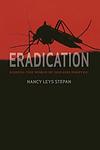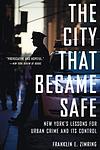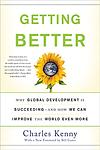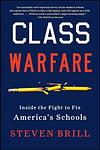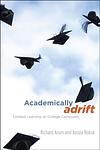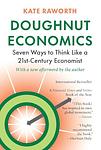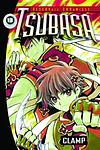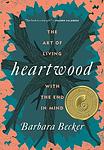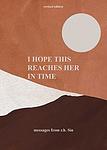The Greatest Books of All Time
Click to learn how this list is calculated.
This list represents a comprehensive and trusted collection of the greatest books. Developed through a specialized algorithm, it brings together 300 'best of' book lists to form a definitive guide to the world's most acclaimed books. For those interested in how these books are chosen, additional details can be found on the rankings page.
Genres
Countries
Date Range
Reading Statistics
Click the button below to see how many of these books you've read!
Download
If you're interested in downloading this list as a CSV file for use in a spreadsheet application, you can easily do so by clicking the button below. Please note that to ensure a manageable file size and faster download, the CSV will include details for only the first 500 books.
Download-
9276. Change.Edu by Andrew S. Rosen
This book provides a critical examination of the American higher education system, arguing that it is in dire need of reform to better serve the needs of modern students and society. The author, a seasoned education executive, delves into the challenges facing colleges and universities, such as skyrocketing tuition costs, access inequality, and the questionable value of traditional degrees in the contemporary job market. Through a blend of personal insights, case studies, and research, the narrative advocates for innovative changes in educational models, including embracing online learning and competency-based education, to make higher education more accessible, affordable, and relevant in the 21st century.
-
9277. Unlocking The Gates by Taylor Walsh
This book explores the transformative journey of digital technology in the realm of higher education, particularly focusing on the rise of online learning platforms. It delves into the challenges and opportunities presented by the move towards open educational resources, examining case studies of pioneering institutions that have embraced these changes. The narrative critically assesses the impact of digital courses on traditional college education, questioning the sustainability of existing models and the potential for wider access to knowledge. Through a detailed analysis, the book offers insights into how the digital age is reshaping the landscape of education, highlighting the pivotal role of innovation in unlocking the gates to a more inclusive and flexible learning environment.
-
9278. Give Smart by Thomas J. Tierney
This book serves as a comprehensive guide for philanthropists and donors who aim to make their contributions more impactful. It emphasizes the importance of strategic giving, urging donors to not only give generously but also to give smartly by applying the principles of strategic philanthropy. Through a combination of insightful advice, practical strategies, and real-world examples, the book outlines how to effectively identify and support causes that align with one's values, how to measure the impact of donations, and how to ensure that every dollar contributed makes a significant difference. It is an essential read for anyone looking to maximize their philanthropic impact and contribute to meaningful change in the world.
-
9279. Eradication by Nancy Leys Stepan
This book provides a comprehensive examination of the concept and practice of disease eradication from a historical perspective. It delves into the scientific, ethical, and political dimensions of the global efforts to eliminate diseases, focusing on case studies such as smallpox, malaria, and polio. The narrative critically assesses the successes and failures of these campaigns, highlighting the complexities and challenges involved in attempting to wipe out diseases. Through a detailed analysis, the book explores the implications of eradication efforts on public health policies and practices, questioning the feasibility and desirability of pursuing eradication as a goal in the face of evolving disease dynamics and global health landscapes.
-
9280. The City That Became Safe by Franklin E. Zimring
This book offers a comprehensive analysis of the dramatic decline in crime rates in New York City over the past two decades, challenging conventional wisdom and simplistic explanations. It meticulously examines the strategies and policies implemented by law enforcement and city officials, attributing the sustained drop in crime to a combination of innovative policing tactics, demographic shifts, and socio-economic changes. Through a detailed exploration of statistical data and crime trends, the author provides a nuanced understanding of how one of the world's largest cities transformed into a model of urban safety, offering valuable lessons for policymakers and cities worldwide.
-
9281. Getting Better by Charles Kenny
The book presents an optimistic view of global progress, arguing that despite the persistence of economic disparities, the world has seen significant improvements in health, education, and quality of life over the past few decades. It challenges the pervasive pessimism surrounding global development by providing evidence of how innovations, policy changes, and international aid have contributed to lifting millions out of poverty, reducing child mortality rates, and increasing literacy and life expectancy worldwide. The narrative is built around the idea that humanity has made remarkable strides in creating a better world for all, emphasizing the importance of continued efforts and investments in global development to sustain and further these gains.
-
9282. That Used To Be Us by Thomas L. Friedman, Michael Mandelbaum
This book offers a critical analysis of the major challenges facing the United States, including globalization, the revolution in information technology, the nation's chronic deficits, and its pattern of excessive energy consumption. The authors argue that the country has lost its way in addressing these issues, which are crucial for maintaining its global leadership and economic vitality. Through a combination of historical insight and contemporary analysis, the book not only diagnoses the problems but also presents a series of recommendations for how the United States can regain its competitive edge and ensure its future prosperity. The narrative is a call to action for leaders and citizens alike to embrace innovation, education, and sustainable practices as pathways to a more successful and resilient nation.
-
9283. Class Warfare by Steven Brill
This book delves into the complex and contentious world of education reform in the United States, offering an in-depth exploration of the battles over public education. Through meticulous reporting, it presents a comprehensive look at the key players, policies, and politics that have shaped the debate over how best to educate America's children. The narrative focuses on the efforts to improve failing schools, the rise of charter schools, the impact of teachers' unions, and the role of wealthy philanthropists. By weaving together the stories of reformers, educators, and students, the book provides a critical examination of the challenges and controversies that have defined the struggle to overhaul America's educational system.
-
9284. Academically Adrift by Richard Arum
This book presents a critical examination of the American higher education system, arguing that it is failing to adequately prepare students for their future careers and lives. Through a detailed analysis of students' performance on standardized tests, as well as their study habits and academic engagement, the book reveals that a significant portion of undergraduates show little improvement in critical thinking, complex reasoning, and writing skills during their college years. The authors attribute this lack of progress to a combination of factors, including the prevalence of a campus culture that prioritizes social life over academic work and an educational system that incentivizes enrollment and retention over rigorous academic standards. The book calls for a reevaluation of higher education policies and practices to ensure that colleges and universities fulfill their educational missions.
-
9285. Steve Jobs by Walter Isaacson
This biography provides an in-depth look at the life of the co-founder of Apple Inc., a visionary and creative genius who revolutionized several industries, from personal computing and animated movies to music, phones, tablet computing, and digital publishing. Drawing from over forty interviews with the subject himself, as well as interviews with more than a hundred family members, friends, adversaries, competitors, and colleagues, the book offers an exhaustive exploration of his intense personality and passionate drive. It delves into his early life, the founding of Apple in his parents' garage, and his rise to becoming one of the most admired creative entrepreneurs of the 20th century. Through his story, the biography not only sheds light on the innovations that have shaped modern technology but also on the qualities and imperfections that defined a man who was at once a brilliant innovator and a complex human being.
-
9286. The Great Leveler : Violence And The History Of Inequality From The Stone Age To The Twenty First Century by Walter Scheidel
This book delves into the historical patterns of inequality, arguing that significant reductions in inequality have only ever been brought about by cataclysmic events, which the author terms as the "Four Horsemen": war, revolution, state collapse, and plague. Through a comprehensive examination of societal structures from the Stone Age to the modern era, it presents a compelling case that peaceful reforms have rarely led to lasting decreases in inequality. The work challenges readers to confront the uncomfortable reality that significant improvements in equality have often been forged in the crucible of immense human suffering, thereby questioning the prospects for achieving future equality without such extreme catalysts.
-
9287. Doughnut Economics by Kate Raworth
The book presents a transformative economic model that proposes a radical rethinking of our current financial systems. It challenges the traditional focus on GDP growth and advocates for a sustainable economy that operates within ecological limits and addresses social foundations. The author introduces the metaphor of a doughnut to illustrate the safe and just space for humanity, bounded by an outer ecological ceiling and an inner social foundation, beyond which lies unacceptable environmental degradation and human deprivation. The book calls for a shift away from the pursuit of endless growth, towards a more holistic, balanced, and equitable approach to economic development that prioritizes the well-being of people and the planet.
-
9288. The Five Invitations by Frank Ostaseski
The book is a profound exploration of what death can teach us about living fully. It is written by a co-founder of a hospice and a renowned Buddhist teacher who shares his experiences and insights from decades of working with the dying. The text presents five core invitations that encourage readers to embrace mortality as a means of understanding the true value of life. These invitations serve as practices for fostering mindfulness, compassion, and personal growth, ultimately guiding individuals toward a more meaningful and present existence. By contemplating the impermanence of life, the author argues that we can live with greater purpose, love more deeply, and let go of the trivial distractions that often preoccupy our daily lives.
-
9289. Reservoir 13 by Jon McGregor
In a small English village, the disappearance of a teenage girl during a family holiday casts a shadow over the community. As the search for her unfolds, the novel delves into the lives of the villagers over the course of thirteen years, revealing their personal struggles, changes, and the rhythms of the natural world around them. The narrative weaves through the mundane and the significant, capturing the ebb and flow of human experience against the backdrop of the enduring countryside, while the mystery of the missing girl lingers, touching everyone in different ways.
-
9290. With The End In Mind by Kathryn Mannix
The book is a profound exploration of the final stage of human life, offering a collection of narratives that shed light on the dying process. Drawing from the author's extensive experience as a palliative care specialist, it aims to demystify death, encouraging open conversations and providing insight into the emotional and physical experiences of patients and their families. Through its stories, the book emphasizes the importance of living well until the end, and it seeks to equip readers with the understanding and language to face death with dignity, compassion, and a sense of preparedness.
-
9291. I Hope This Reaches Her In Time by r.h. Sin
The book is a heartfelt compilation of prose and poetry that delves into the complexities of love, loss, and healing. It serves as a poignant reflection on the struggles of modern relationships, the journey of self-discovery, and the importance of self-love. Through its pages, the author reaches out to readers with messages of hope, empowerment, and the reassurance that it's never too late to find oneself and move forward, even after experiencing heartache. The work resonates with those who have loved deeply, faced emotional hardships, and are seeking solace and strength in words that echo their own experiences.
-
9292. Cross Fire by James Patterson
In this thrilling installment of a popular detective series, the protagonist, a seasoned and tenacious detective, finds himself embroiled in a complex case involving a series of meticulously executed assassinations. The victims, all notorious public figures with a history of corruption and scandal, are taken out by a sniper whose skill and precision suggest a deeply personal vendetta. As the detective delves deeper into the investigation, he uncovers a tangled web of political intrigue and revenge, all while navigating his own impending nuptials and the ever-present danger to his loved ones. The narrative races towards a gripping climax, challenging the detective's moral compass and his commitment to justice.
-
9293. Love Her Wild by Atticus
"Love Her Wild" is a collection of poetic entries that explore the multifaceted nature of love, adventure, and the discovery of self. The poems are a blend of short, sharp verses and longer, introspective pieces that together weave a tapestry of emotion and experience. They capture the essence of youthful exploration, both of the world and the heart, with a voice that resonates with a generation yearning for authenticity and connection. The book is a journey through love's varied landscapes, from the wild exhilaration of romance to the quiet moments of reflection, encapsulating the highs and lows of the human experience.
-
9294. Earth: An Intimate History by Richard Fortey
This book provides a comprehensive understanding of the Earth's geological history. The author explores how the planet's diverse landscapes were formed over billions of years, examining various regions around the world from Hawaii to the Alps. The narrative intertwines scientific theories with engaging storytelling, making complex geological concepts accessible to a general audience. The book also emphasizes the impact of geological forces on human history and culture.
-
9295. Seven Husbands Of Evelyn Hugo by Taylor Jenkins Reid
This novel unfolds the glamorous yet tumultuous life of aging Hollywood icon, Evelyn Hugo, as she decides to finally reveal the truth about her scandalous life and her marriages to seven men. Through an exclusive interview with an unknown magazine reporter, Evelyn's story traverses decades of her career, uncovering the ruthless ambition, unexpected friendship, and a great forbidden love that defined her. The narrative delves deep into themes of identity, love, and the price of fame, as Evelyn's complex character—her triumphs and her failures—is laid bare against the backdrop of the golden age of Hollywood.
-
9296. The History Manifesto by Johanna Hanink
"The History Manifesto" is a thought-provoking exploration into the role of history and historians in addressing the long-term social, political, and environmental challenges facing the world today. It argues for a return to longue durée historical analysis, emphasizing the importance of understanding the deep roots of current issues to inform policy and public debate. The book critiques the trend towards short-termism in both historical research and contemporary policymaking, advocating for a broader, more inclusive approach to history that can offer valuable insights into the complex, interconnected problems of the 21st century. Through its compelling case for the relevance of history in shaping a better future, it challenges historians to think big and reasserts the significance of their work in the public sphere.
-
9297. American Innovations by Rivka Galchen
"American Innovations" is a collection of short stories that reimagines classic tales from a female perspective. The stories are narrated by a range of women, from the young to the old, who are all dealing with life's unpredictable turns and challenges. The narrative explores themes of identity, loneliness, and the often surreal experiences of everyday life, all while maintaining a sense of humor and whimsy. The book offers a fresh, contemporary take on traditional storytelling, blending the mundane with the fantastical in unexpected ways.
-
9298. Being Jordan by Katie Price
"Being Jordan" is a candid autobiography of a British media personality, model, and businesswoman. The book delves into her personal life, detailing her rise to fame, her experiences with plastic surgery, her relationships, and her struggles with the media. It provides an inside look into her life, from her childhood, through her modeling career, to her life as a mother, offering a glimpse into the reality behind her public persona.
-
9299. Tu by Patricia Grace
"Tu" is a heartfelt novel that explores the life of a young Maori boy named Tu, who is raised by his grandparents in rural New Zealand. Set in the 1960s, the story follows Tu's journey as he navigates the challenges of growing up in a changing society, grappling with his identity, and finding his place within his community. Through vivid storytelling and rich cultural references, the novel delves into themes of family, tradition, and the enduring power of love and resilience.
-
9300. Mockingjay by Suzanne Collins
In this gripping conclusion to a dystopian trilogy, the protagonist becomes the symbol of rebellion against the oppressive Capitol. As the districts unite for a final stand, she must navigate the complexities of war, politics, and personal loss, while struggling with her feelings for two men who have been by her side through her journey. Amidst intense battles and moral dilemmas, the story explores themes of power, sacrifice, and the cost of freedom, culminating in a climactic ending that reshapes the future of their world.
Reading Statistics
Click the button below to see how many of these books you've read!
Download
If you're interested in downloading this list as a CSV file for use in a spreadsheet application, you can easily do so by clicking the button below. Please note that to ensure a manageable file size and faster download, the CSV will include details for only the first 500 books.
Download


